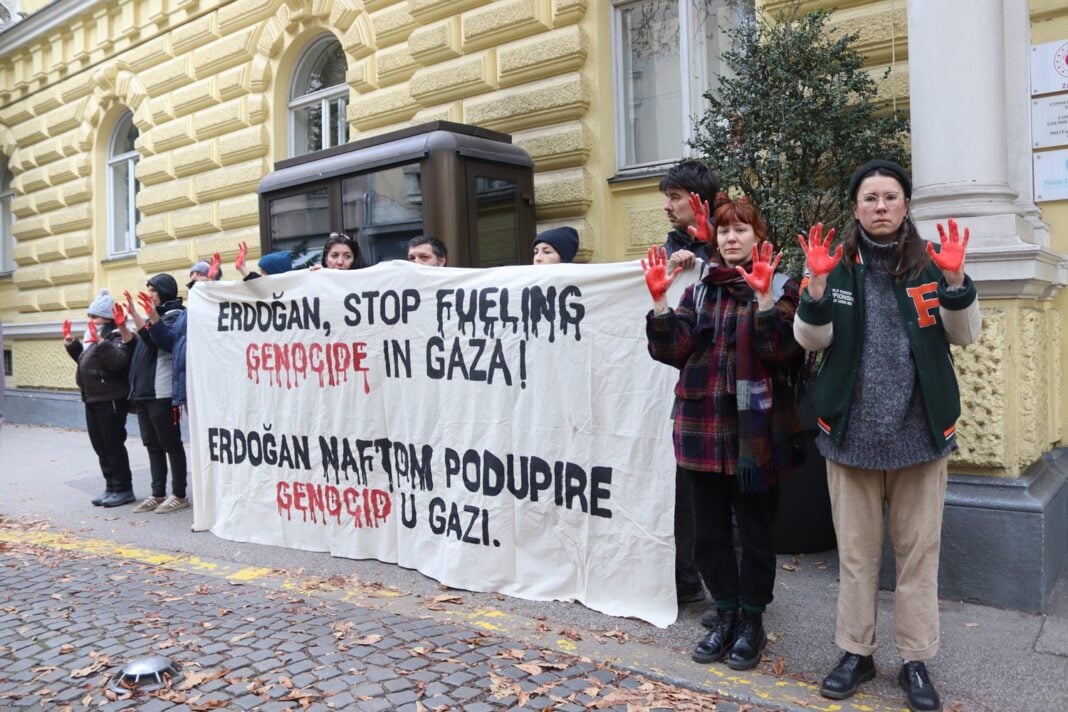December 20, 2024

A new report by the Stop Fueling Genocide campaign, supported by Progressive International, has revealed that 10 crude oil shipments were made from Turkey to Israel over the past year, eight of which violated Ankara’s embargo announced in May, according to the Gazete Duvar news website.
The report is the second from the group, which uses satellite imagery and shipping data to track the movement of tankers from Turkey’s Ceyhan port to Israel, providing evidence that Ankara’s crude oil shipments to Israel continued despite the trade ban.
In the first report researchers confirmed that a tanker, the Seavigour, loaded Azeri crude oil in Ceyhan on October 28, turned off its tracking signal in the eastern Mediterranean on October 30 and reappeared near Sicily a week later, having reportedly offloaded its cargo. Satellite imagery later showed the Seavigour docking at the EAPC terminal near Ashkelon, Israel, on November 5.
Ceyhan serves as the endpoint of the Baku-Tbilisi-Ceyhan (BTC) pipeline, which transports crude oil from Azerbaijan. This oil accounts for nearly 30 percent of Israel’s crude imports. Reports indicate that Azerbaijan’s oil exports to Israel have quadrupled this year, rising from 523,554 tons in January to 2,372,248 tons in September.
Researchers identified 10 journeys made since December 2023 by another crude oil tanker, the Kimolos, between Ceyhan and the EAPC Terminal in the second report, with eight occurring after Turkey’s trade blockade on Israel was announced.
The report said the Kimolos, similar to other vessels trading with Israel, was turning off its tracking signal in the middle of the eastern Mediterranean for several days to mask the trade between Turkey and Israel.
The two ships identified in the reports are Suezmax-size vessels, which are chartered specifically for the transfer of high volumes of crude oil.
The report said researchers “have reasonably concluded” from this evidence that the Kimolos has routinely shipped Azeri crude oil from Turkey to Israel throughout the past year.
The findings contradict statements by Turkey’s energy minister, who had denied any oil shipments to Israel since the embargo began.
The ongoing trade with Israel has drawn criticism from activists, who argue that crude oil from the BTC pipeline is refined and used to fuel Israeli military equipment. Advocacy groups have called on Turkey to enforce the embargo and align its policies with its stated support for Palestine.
Experts warn that if the International Court of Justice determines Israel is committing genocide in Gaza, those involved in supplying fuel could be found complicit in failing to prevent genocide.
Earlier this month nine activists, who had interrupted President Recep Tayyip Erdoğan’s November 29 speech at the TRT World Forum in İstanbul, accusing the president of hypocrisy for allegedly facilitating crude oil shipments to Israel despite Turkey’s public stance against Israeli military actions in Gaza, were detained and subsequently arrested by a court on December 2. They were released on December 6 after their lawyers filed an appeal contesting the arrests.
The arrests have sparked outrage among human rights groups and activists. Critics argue that Erdoğan’s government is suppressing dissent while enabling trade that contradicts its pro-Palestinian rhetoric.

No comments:
Post a Comment